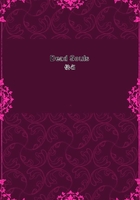
第58章
When Chichikov awoke he stretched himself and realised that he had slept well. For a moment or two he lay on his back, and then suddenly clapped his hands at the recollection that he was now owner of nearly four hundred souls. At once he leapt out of bed without so much as glancing at his face in the mirror, though, as a rule, he had much solicitude for his features, and especially for his chin, of which he would make the most when in company with friends, and more particularly should any one happen to enter while he was engaged in the process of shaving. "Look how round my chin is!" was his usual formula. On the present occasion, however, he looked neither at chin nor at any other feature, but at once donned his flower-embroidered slippers of morroco leather (the kind of slippers in which, thanks to the Russian love for a dressing-gowned existence, the town of Torzhok does such a huge trade), and, clad only in a meagre shirt, so far forgot his elderliness and dignity as to cut a couple of capers after the fashion of a Scottish highlander--alighting neatly, each time, on the flat of his heels. Only when he had done that did he proceed to business. Planting himself before his dispatch-box, he rubbed his hands with a satisfaction worthy of an incorruptible rural magistrate when adjourning for luncheon; after which he extracted from the receptacle a bundle of papers. These he had decided not to deposit with a lawyer, for the reason that he would hasten matters, as well as save expense, by himself framing and fair-copying the necessary deeds of indenture; and since he was thoroughly acquainted with the necessary terminology, he proceeded to inscribe in large characters the date, and then in smaller ones, his name and rank. By two o'clock the whole was finished, and as he looked at the sheets of names representing bygone peasants who had ploughed, worked at handicrafts, cheated their masters, fetched, carried, and got drunk (though SOMEof them may have behaved well), there came over him a strange, unaccountable sensation. To his eye each list of names seemed to possess a character of its own; and even individual peasants therein seemed to have taken on certain qualities peculiar to themselves. For instance, to the majority of Madame Korobotchka's serfs there were appended nicknames and other additions; Plushkin's list was distinguished by a conciseness of exposition which had led to certain of the items being represented merely by Christian name, patronymic, and a couple of dots; and Sobakevitch's list was remarkable for its amplitude and circumstantiality, in that not a single peasant had such of his peculiar characteristics omitted as that the deceased had been "excellent at joinery," or "sober and ready to pay attention to his work." Also, in Sobakevitch's list there was recorded who had been the father and the mother of each of the deceased, and how those parents had behaved themselves. Only against the name of a certain Thedotov was there inscribed: "Father unknown, Mother the maidservant Kapitolina, Morals and Honesty good." These details communicated to the document a certain air of freshness, they seemed to connote that the peasants in question had lived but yesterday. As Chichikov scanned the list he felt softened in spirit, and said with a sigh:
"My friends, what a concourse of you is here! How did you all pass your lives, my brethren? And how did you all come to depart hence?"As he spoke his eyes halted at one name in particular--that of the same Peter Saveliev Neuvazhai Korito who had once been the property of the window Korobotchka. Once more he could not help exclaiming:
"What a series of titles! They occupy a whole line! Peter Saveliev, Iwonder whether you were an artisan or a plain muzhik. Also, I wonder how you came to meet your end; whether in a tavern, or whether through going to sleep in the middle of the road and being run over by a train of waggons. Again, I see the name, 'Probka Stepan, carpenter, very sober.' That must be the hero of whom the Guards would have been so glad to get hold. How well I can imagine him tramping the country with an axe in his belt and his boots on his shoulder, and living on a few groats'-worth of bread and dried fish per day, and taking home a couple of half-rouble pieces in his purse, and sewing the notes into his breeches, or stuffing them into his boots! In what manner came you by your end, Probka Stepan? Did you, for good wages, mount a scaffold around the cupola of the village church, and, climbing thence to the cross above, miss your footing on a beam, and fall headlong with none at hand but Uncle Michai--the good uncle who, scratching the back of his neck, and muttering, 'Ah, Vania, for once you have been too clever!' straightway lashed himself to a rope, and took your place?
'Maksim Teliatnikov, shoemaker.' A shoemaker, indeed? 'As drunk as a shoemaker,' says the proverb. _I_ know what you were like, my friend.